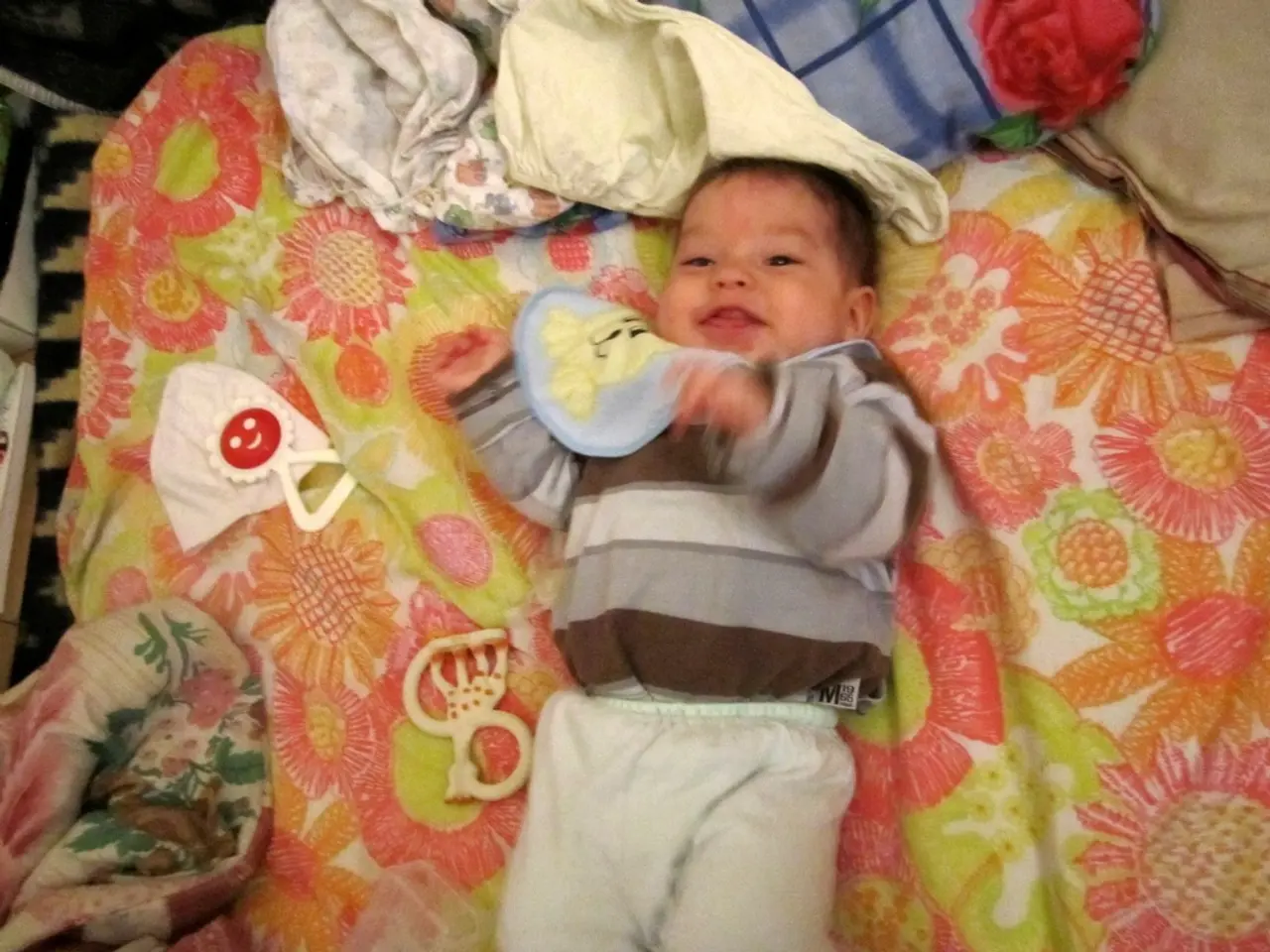Development of a Seven to Nine-Month-Old Infant in Nigeria: Anticipated Milestones
At seven to nine months, a baby's development takes on a new dimension as they begin to recognise familiar faces and objects, showing excitement and happiness upon seeing loved ones. This period is marked by increased curiosity, as babies interact more with age-appropriate toys and games, contributing to their cognitive growth and understanding of the world around them.
While growth persists, the pace might appear less dramatic compared to the rapid changes witnessed in the first few months after birth. However, this stage witnesses remarkable strides in physical abilities. Babies become more adept at sitting without support, showcasing improved balance and stability. They may even start to pull themselves up or stand with support by the end of this range.
In the realm of cognitive development, babies explore everything physically and develop better hand-eye coordination. They show curiosity by reaching for and manipulating objects. This period is characterised by babbling, producing repetitive consonant-vowel sounds like "ba," "da," or "ma." Babies begin to respond to their name and recognise common words.
Feeding becomes more diverse during this stage. While mainly still breastfeeding or formula feeding, babies may start complementary feeding with soft solids, depending on cultural practices. They begin developing the motor skills to handle small finger foods. In Nigeria, introducing solid foods is crucial at this stage to meet the growing nutritional requirements of the baby.
Emotionally and socially, babies develop stronger attachments, show preferences for familiar people, and express emotions like joy and frustration more clearly. Socially, they enjoy interactive play, such as peekaboo, and respond to voices and expressions.
In Nigeria, parents can introduce traditional toys like wooden puzzles or local handcrafted toys, encouraging cultural familiarity while promoting cognitive development. Teething becomes a focal point during these months. It's common for babies to experience the emergence of their first tooth during this period.
Providing a secure and supportive environment is crucial to promoting the emotional well-being of babies. Caregivers should create a consistent routine, respond promptly and affectionately to their needs, provide physical comfort, offer a safe and stimulating environment, show love and affection, and validate their emotions.
These milestones offer a general guide; individual variation is normal. Local cultural and environmental factors in Nigeria may influence the timing and expression of these behaviors. It's important to remember that every baby is unique, and their development may not follow this exact timeline. However, understanding these typical milestones can help parents and caregivers ensure that their little ones are growing and developing as expected.
- During this period, kids interact more with age-appropriate toys and games for their cognitive growth and understanding of the world.
- Babies may show excitement and happiness upon seeing loved ones in their emotional development, as they begin to recognize familiar faces and objects.
- The increasing curiosity of babies also contributes to their learning as they explore everything physically, developing better hand-eye coordination.
- Feeding becomes more diverse during this stage, with babies starting complementary feeding with soft solids, improving their nutrition.
- In Nigeria, introducing solid foods is crucial to meet the growing nutritional requirements of the baby, stating the importance of health-and-wellness.
- Emotionally and socially, babies develop stronger attachments and express emotions like joy and frustration more clearly.
- Parents in Nigeria can introduce traditional toys like wooden puzzles or local handcrafted toys, encouraging cultural familiarity and promoting cognitive development.
- Providing a secure and supportive environment and creating a consistent routine can promote the emotional well-being of babies and aid their behavioral development.
- Understanding these typical milestones can help parents and caregivers ensure that their little ones are developing as expected, acknowledging the importance of parenting in a child's growth and education.




